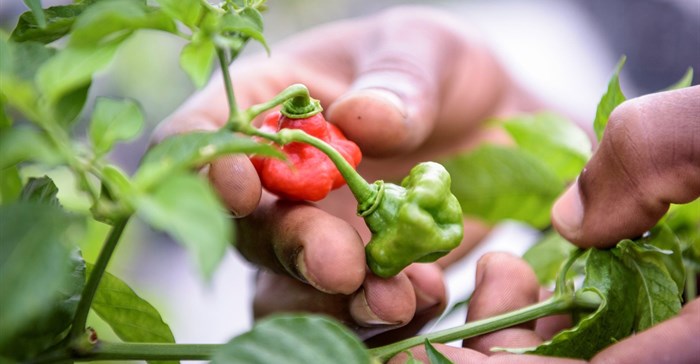
Top stories






LifestyleWhen to stop Googling and call the vet: Expert advice on pet allergies from dotsure.co.za
dotsure.co.za 2 days
More news

















"Since our inception, as a business, we have supported 420 emerging farmers across seven South African provinces. It has not been an easy journey. However, despite all the challenges, given the nature of agriculture, we have seen some growth amongst the farmers we have impacted. Our blueprint is about customised solutions, tailored around the needs of smallholder farmers," explains Kole.
Three years ago, South African Breweries (SAB) established and invested in FarmSol, a black-owned agricultural services company as part of its commitment to enterprise, agricultural, and community development. FarmSol is currently expanding its operations beyond SAB’s supply chain in order to provide its service offering to other FMCGs and additional farmers, procuring other raw material crops from broader communities.
Farmers must contend with a number of risks, including adverse weather conditions and the three consecutive years of drought which has had a severe impact on the agricultural sector in South Africa. According to ABSA’s Autumn Edition 2019 – Agricultural Outlook, South Africa remains a water-scarce country with a warm and dry climate and based on climate change models, it is expected to become even warmer and drier.
Kole points out that climate change, especially during the 2014 to 2015 season, had a devastating impact on many of FarmSol’s farmers, who have not yet recovered from the setbacks they experienced.
Against this background and given the fact that agriculture remains an important economic driver, both government and the private sector needs to reprioritise job creation and support for smallholder farmers. Without it, the outlook seems bleak.
"In the absence of any adaptation mechanism by farmers, and other industry role-players, including financiers, and any changes in policy, such as irrigation policy, the change in agricultural productivity as a result of climate change could reduce annual agricultural incomes in the coming years, with dryland areas most affected," says Hamlet Hlomendlini, manager: agribusiness enablement Absa.
“We have a three-tier transformational agenda that is focused on creating and sustaining agricultural jobs, creating opportunities for skills development and creating a pool of black sustainable farmers. FarmSol, is not just looking at the individual farmer, but the community and nation at large as important stakeholders in the development journey. In short, the company believes: progress starts here," says Kole.
He points out that farmers under the FarmSol programme delivered 13,100 tonnes of barley qualifying as malting barley in the previous season which equates to 93% of barley produced in the previous season under the programme. For the current season, FarmSol has contracted a total of 119 emerging producers planting 7,843 hectares of barley in the Western Cape and Taung-district in the North West. Thirty-five of these producers are female farmers.
Areas cultivating barley in the Western Cape have increased from just over 70,000 hectares in 2014 to 85,000 hectares in 2017. South Africa is currently looking at plans to increase local hops production by around 150 tonnes to 1,000 tonnes per year, of which more than 250 tonnes will be for the export market. In addition, the country’s hops breeding programme has successfully introduced six commercial varieties - with 424 hectares of hops being grown in the Southern Cape. In the previous production season, FarmSol assisted a hop farmer in George in the Western Cape with loan funding to expand his production by 18 hectares.
Groundnuts: FarmSol provided funding and technical support to 31 farmers producing on 170 hectares of land. The off-take for the groundnuts was secured with a company called Golden Peanuts which have groundnut handling facilities in Hartswater in Northern Cape and Hoopstad in the Free State. The expected groundnut crop decreased by 9.36% or 2,125 tonnes to 20,580 tonnes, with an expected yield of 1.03 t/ha during 2019. The area estimate for groundnuts is 20,050 ha (Crop Estimates Committee).
Maize (non-GMO): A total of 242 emerging farmers, including 128 female farmers, planting maize in six provinces on 7,823 hectares received technical and production funding support during the 2018/2019 season from FarmSol. The production of yellow maize in South Africa is expected to increase from the current 5.4 million tonnes to 6.3 million tonnes in 2021 (Absa).
Sunflower: Due to late rainfall experienced in the North-West and some of the western parts of the Free State, FarmSol assisted a number of farmers that could not plant non-genetically modified yellow maize with planting sunflowers on a total area of 690 hectares. It is expected that South Africa will produce 563,590 tonnes of sunflower seed in 2019 - lower than the annual average of 780,000 tonnes (Absa).